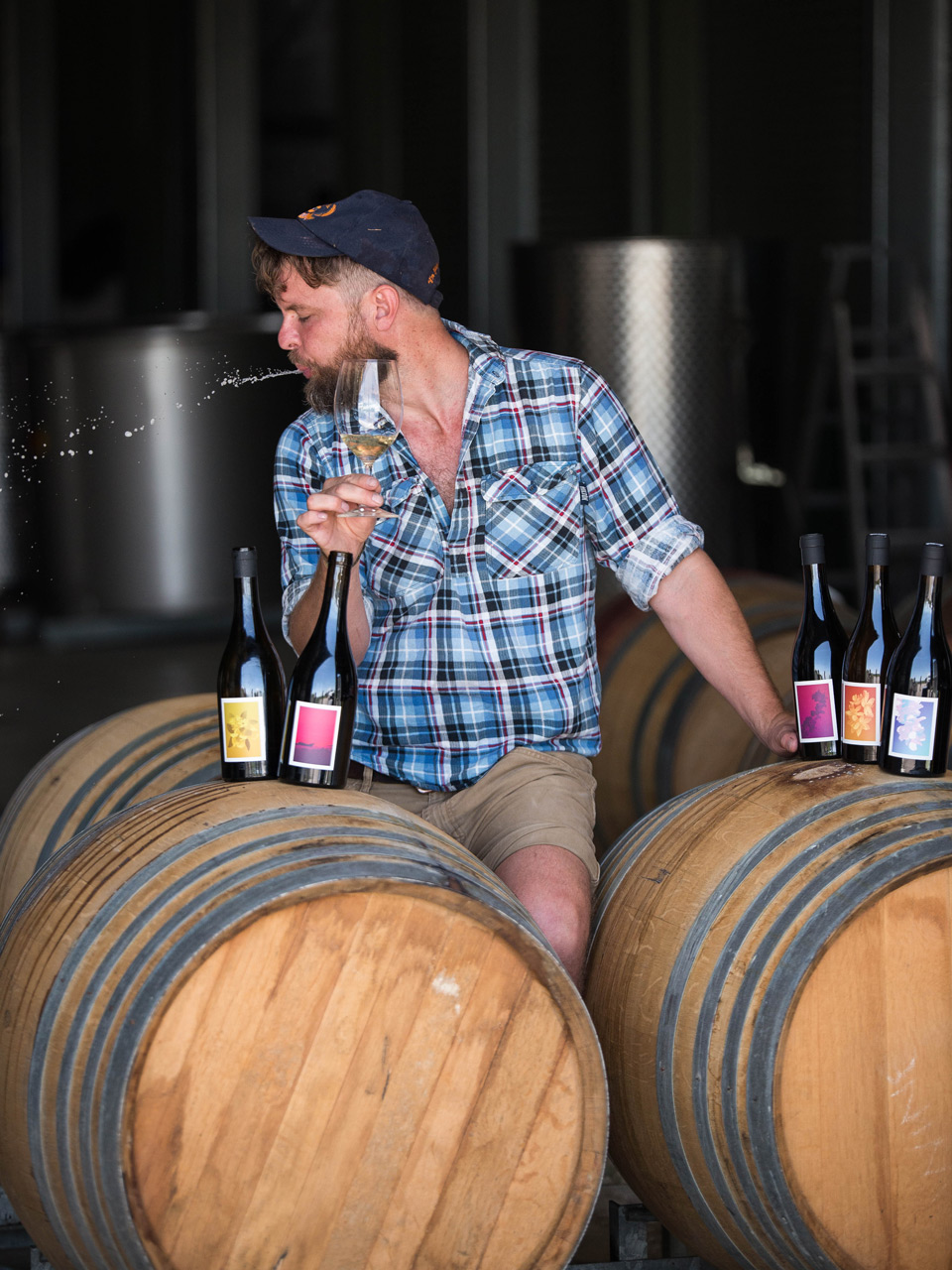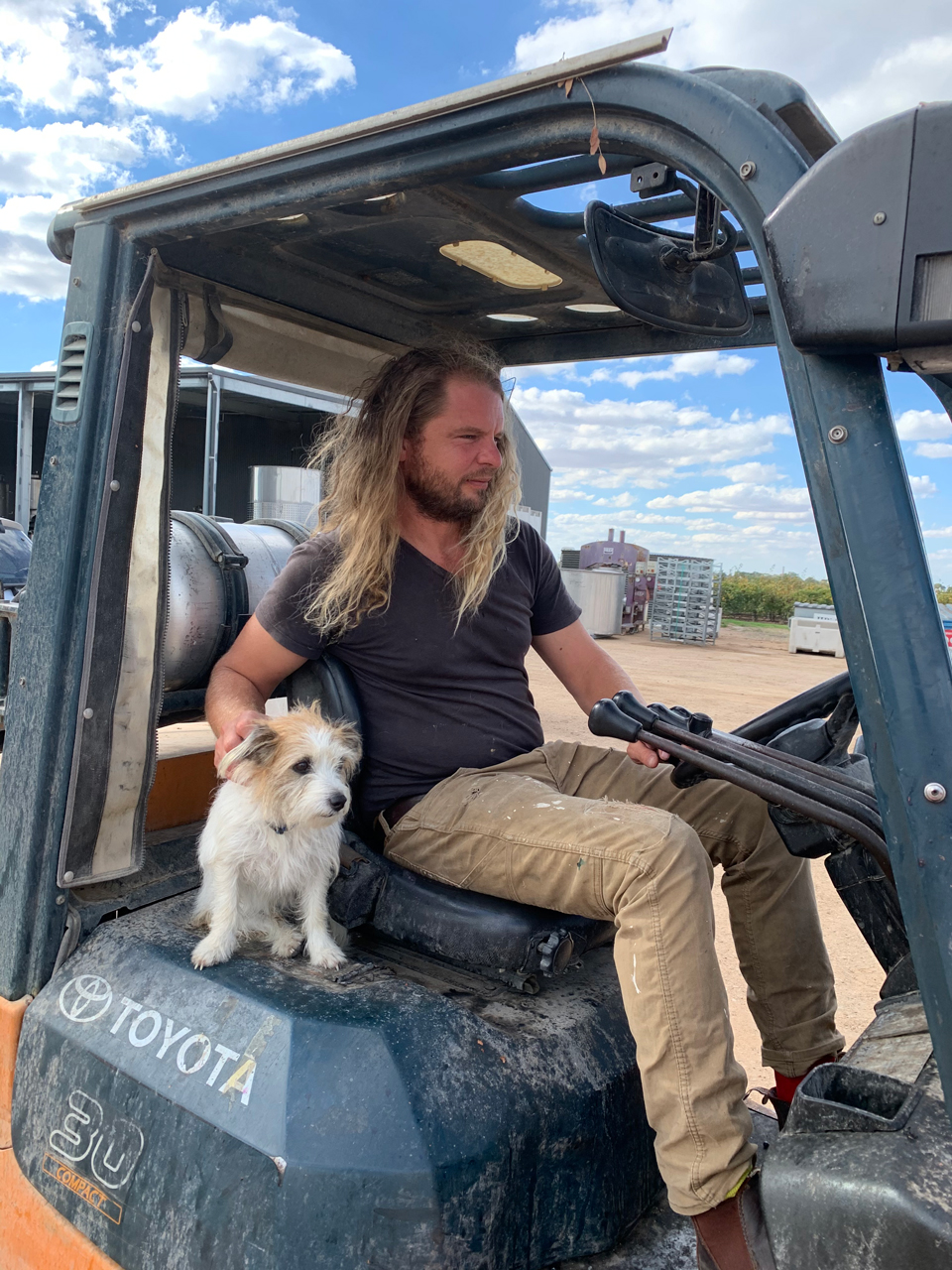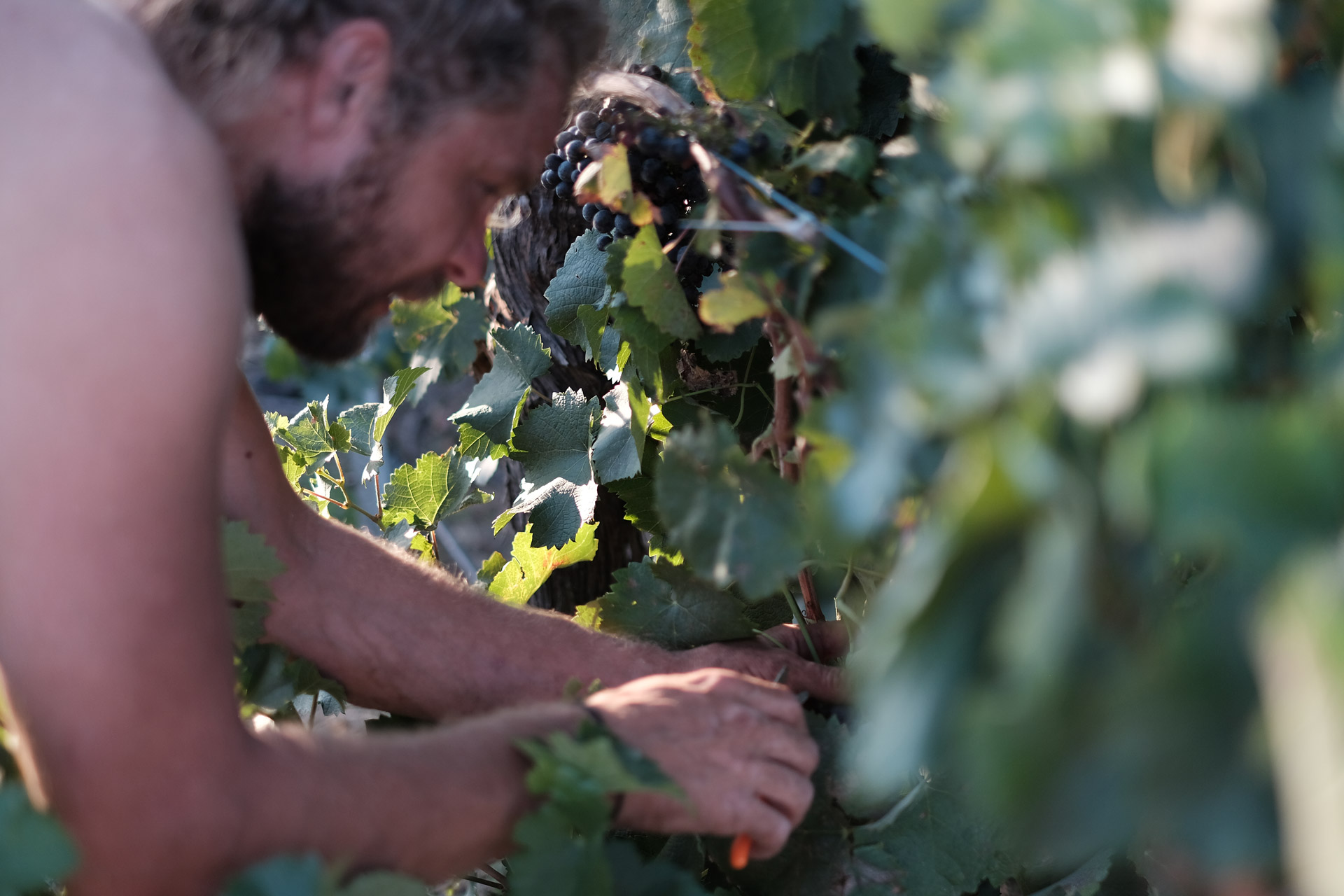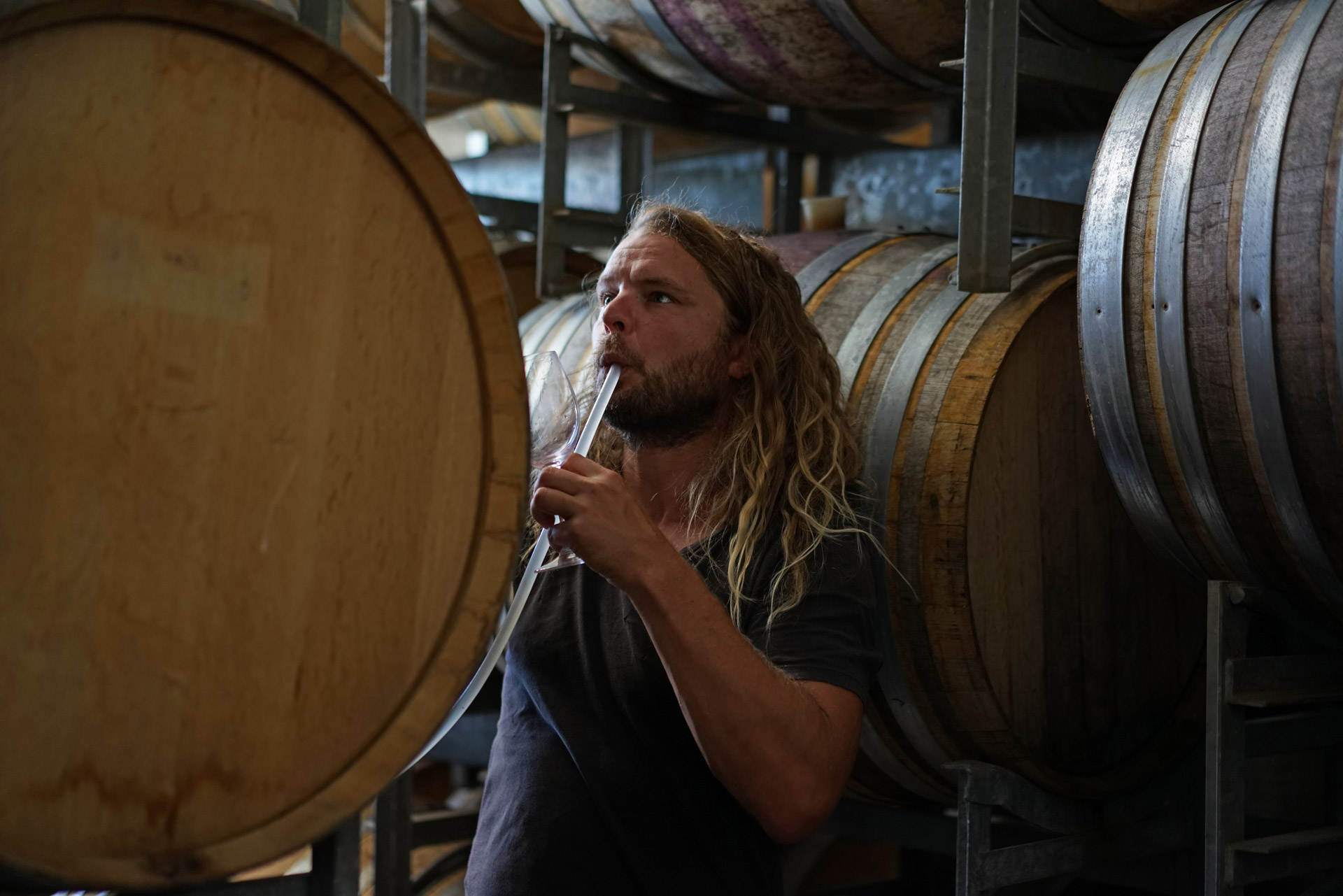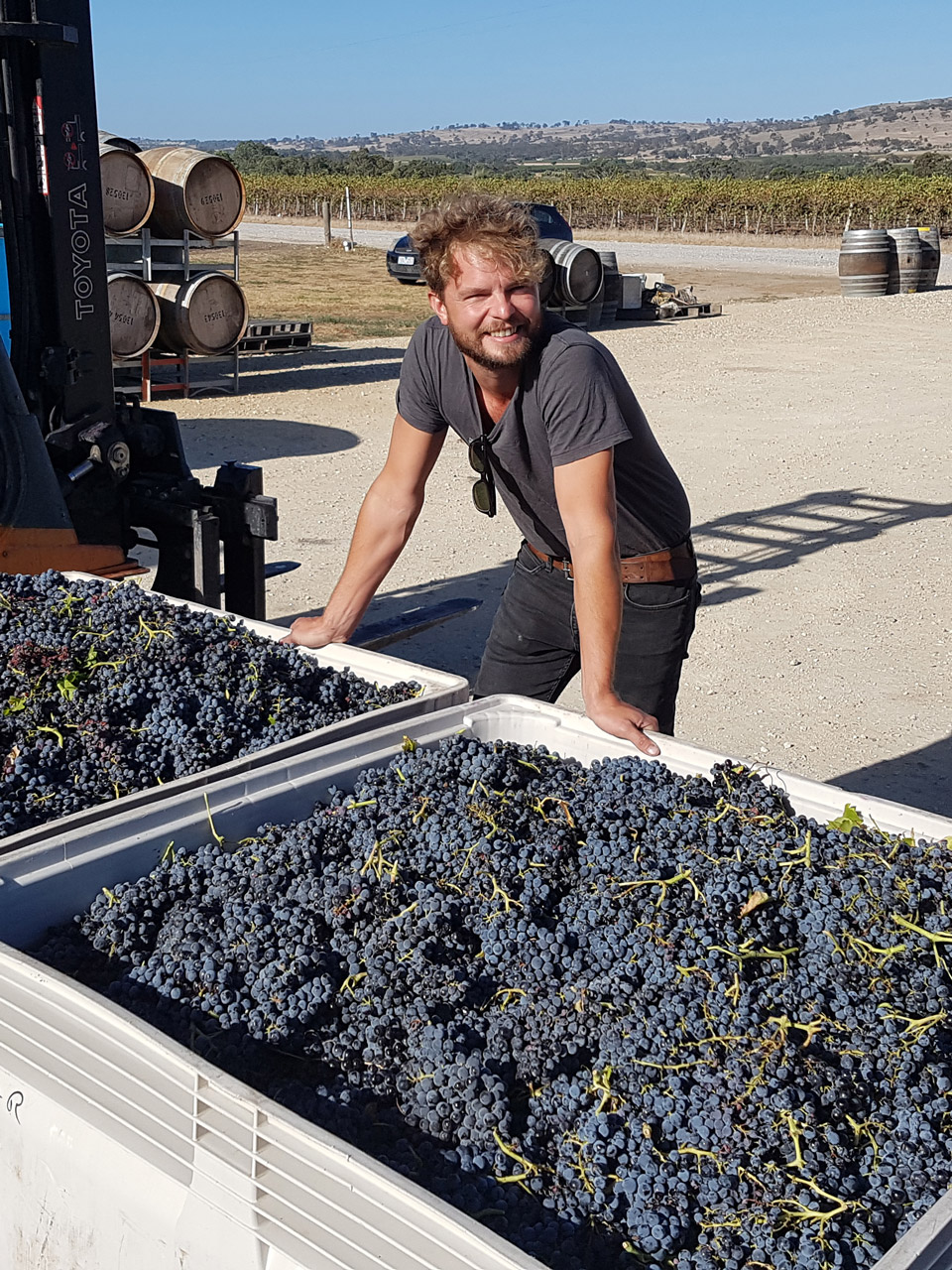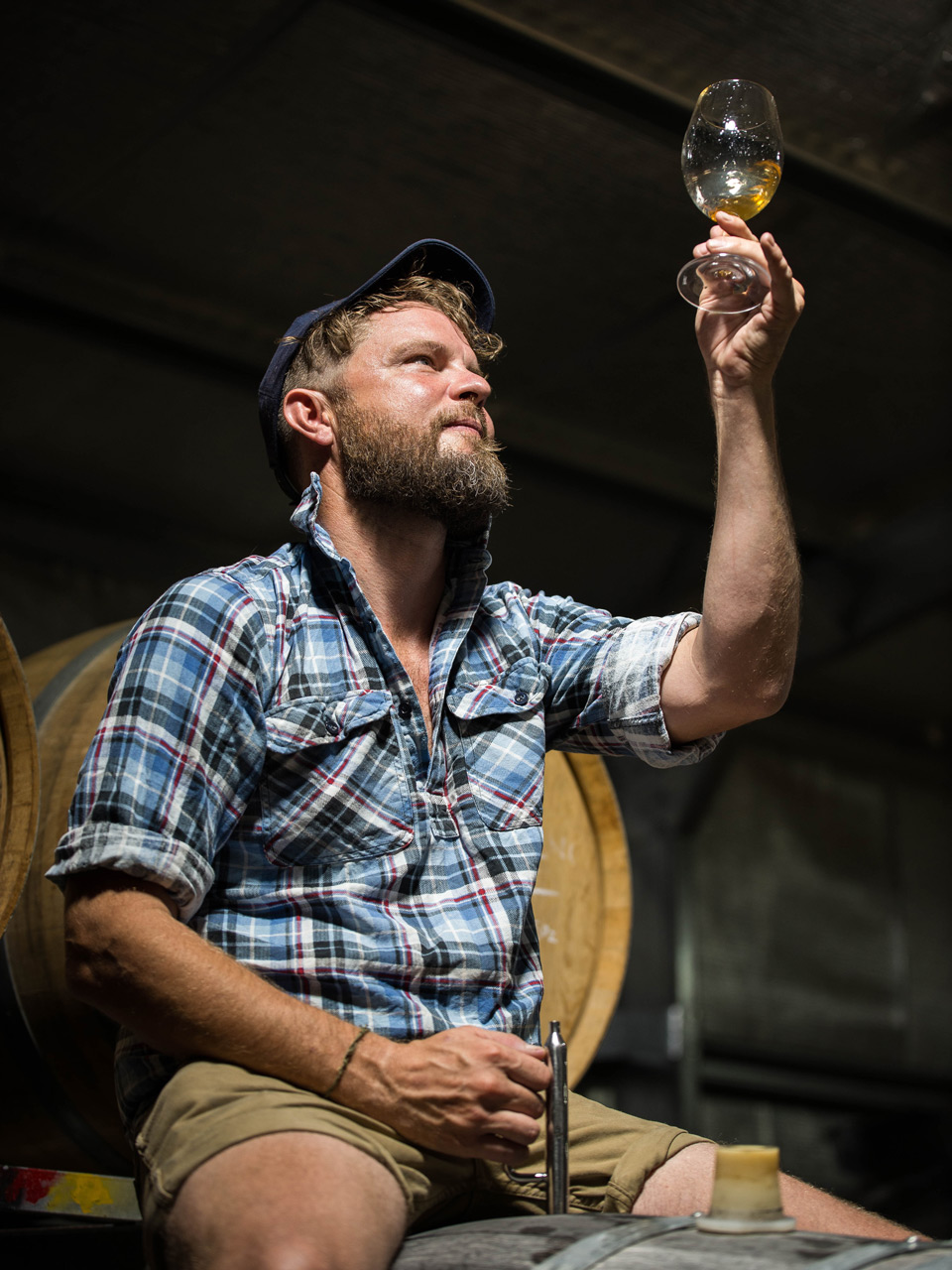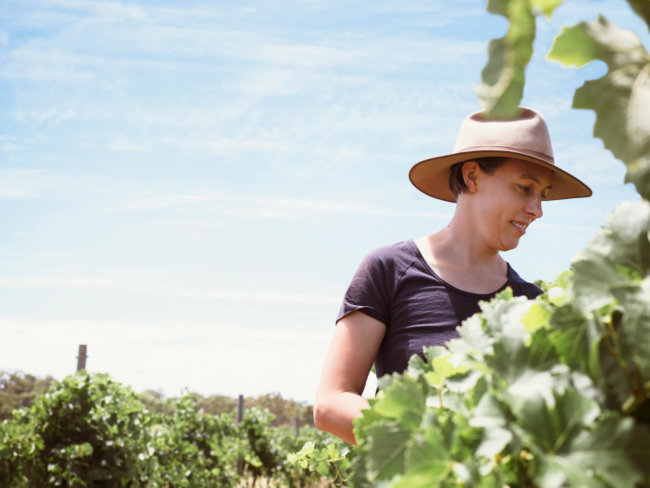Sven Joschke’s wines are lo-fi, and with no adds except a particularly small dose of sulphur when they go to bottle, but that’s not to say they aren’t purposeful with clear directions in mind, as he says, “minimal intervention, made with intent”. With only a few years of winemaking under his belt – after fleeing a corporate career as an accountant – Joschke hit the ground running, now making wines from the Adelaide Hills, Langhorne Creek and the Barossa, as well as in the Jura, France.
As a young label, Joschke’s range is naturally developing, but he’s looking to have a slew of new wines on the market soon, and some that will be many years off. “Our favourite new projects are still underway and looking damn tasty. Time is key to get these projects to where they need to be, so we’ll need to wait a little longer,” he says.
“A syrah-based Portuguese-style VP [Vintage Port] is about to hit the market. Flor projects, rosé and blanc, have been put down for the long haul with veil already developing. It’ll be another 5–6 years before these wines see bottle… Two vermouth projects are underway. ‘Rouge’ is cabernet based with brandy spirit being steeped with wormwood, dates, figs, angelica root, quinces and prunes – plus a couple of other little secrets. ‘Blanc’ spirit was citrus focused with wormwood but has been out in the sun for a couple of years to develop rancio characters.”
Joschke describes himself as “an office lad who gave up the city life for the love of wine”. A friendship with “Amsterdam’s top somm, Lotte Wolf” and Movida Aqui’s head sommelier and restaurant manager at the time, Andrew Marshall, opened him up to the exciting possibilities of good wine.
“I’m not big on comparing myself and wines to others. The wines are as intended and are a representation of varieties, the regions they come from and myself,” he says, “soulfully created wines by taking calculated risks throughout vinification… minimal intervention, made with intent.”
While living with Marshall, Joschke says he “was exposed to the finest wines and stories that accompany them. One day in the veggie patch with a glass of Morgon Beaujolais, it struck me: ‘Must be amongst nature and wine as a life choice’. I quit my job, packed the car and moved to the Barossa.”
That decision saw Joschke give up a career as a chartered accountant and arrange a job in the Spinifex and Schwarz Wine Co. shed in Tanunda, Barossa Valley, to start a new career. He received the first batch of fruit that he’d ever worked with just two weeks later. That could have been somewhat of a culture shock, but Joschke was unfazed: “Taking a leap of faith is not a question when you’re truly inspired.”
Like many top emerging makers before him, working alongside Spinifex’s Pete Schell proved to be a good choice. “My true local inspirations lie with Pete,” says Joschke. “Innovative, creative, progressive, never afraid to take a risk. The end result is generally truly spectacular. And if it’s not, what a great learning curve for the next vintage. I respect that philosophy wholeheartedly.”
“We as producers are only as good as the sites. Site selection is key – suitable variety to region and climate, along with sustainable vineyard management.”
At Spinifex, Joschke also met Marin Fumey of Domaine Fumey Chatelain, forging a friendship and trading vintages between the Barossa and Fumey’s family estate in the Jura region in France’s north-west. It is from those vineyards that Joschke also made one of his first wines, with a chardonnay from Arbois made in 2018 to join a mataro and a grenache from the Barossa’s Vine Vale.
The range grew to include rosé, sangiovese, chardonnay, syrah, cinsault and dolcetto – both blends and varietal bottlings – from the Adelaide Hills, Langhorne Creek and the Barossa. Joschke also now makes a fumé blanc, a skinsy old vine muscat and semillon, a chardonnay pét-nat and a semillon that was made as a tribute to his friend Lotte Wolf, who he first met in 2008 during vintage in Portugal, and sadly passed away unexpectedly in 2018.
“Being a new entrant into the industry and after receiving so much love and support from the wine community, we thought it was time to pay it forward. Lotte, a dear somm friend of ours, had a foundation established in her name in the Netherlands. The aim is to keep Lotte’s presence in the industry going but importantly, to support new entrants in wine in the form of scholarships, with a focus on women in wine. Our contribution to the foundation is her favourite variety, semillon, produced in true Lotte minimal-intervention fashion.”
While all of Joschke’s wines are certainly on the lo-fi side of things, he’s resistant to easy classification. “I’m not big on comparing myself and wines to others. The wines are as intended and are a representation of varieties, the regions they come from and myself,” he says, “soulfully created wines by taking calculated risks throughout vinification.”
It’s an approach that he puts down to not just the mentoring of Schell, but a host of winemakers and viticulturists both here and in France. “Their insight and collective wisdom have helped shape my individual philosophy on winemaking, and I’ll be forever grateful,” he says.
“Barossa is a traditional region, but it has the emergence of experimental and progressive winemakers and vignerons. The blend of tradition and experiment is formidable. What makes the Barossa, in my opinion, one of greatest regions in Australia is its wine community – collaborative, inviting, encouraging and willing to give a new fella a go. There’s an underground theme of breaking away from its bread and butter, with numerous types of varieties being planted and progressive vinification techniques being adopted.”
But Joschke is also at pains to point out the critical role of site and farming. “We as producers are only as good as the sites. Site selection is key – suitable variety to region and climate, along with sustainable vineyard management. I continue to search for sites where the grower and I share the same pursuit – a sustainable and ethical collective of growers and producers. We’re all in this together and when sustainability and overall quality continues to rise, everybody wins.”
Joschke says he has found valley floor sites that have been abandoned for some time. “The project is super exciting, and with the practices adopted, should yield exceptional organic fruit down the track. I’ve also managed to find additional organic sites in regions only dabbled in previously for new cuvees. … Cinsault and mataro are also being planted for us by a local grower this year, which we’ll have a lot of involvement in. These two sites will be specifically grown for rosé.”
Joschke notes that as a general production philosophy, his wines are produced using minimal sulphur additions, with less than 20 ppm added at bottling only. “I have an emphasis on lees work, even with reds, with no additions… unless in case of an emergency. Lees brings with it the added benefit of protecting wines over a long period of time, allowing the use of minimal sulphur. I’m in love with barrel fermentation and what this technique brings to each wine.”
A more permanent winery has meant Joschke could pursue his ambition to make flor-raised wines. “Previous production sites have prevented us from attempting this daunting exercise, but we’ve found our place now – you can’t move those barrels,” he says, noting that the project combines two of his great loves: flor and rosé. “Rosé is still a big focus for us, and we’d like to develop our style further. Ignoring the fact that rosé production is super fun, it’s a style where the winemaker has the most control over the output. Being saignée free, selecting sites and picking specifically for rosé is key. Barossa Mataro still throws the best characters in rosé in my opinion.”

